I think it’s safe to say that these guys have super powers. By now they are sort of a “Malariamen” who have survived the virus at least four or five times and, somehow, managed to keep cycling through some of the least developed countries in the world where roads are practically mud.

Since we last met – and I apologize for the long hiatus on this series of interviews – Adi and Fabian cycled Senegal, The Gambia, Guinea-Bissau, Guinea, Sierra Leone, Liberia, Côte d’Ivoire, Ghana, Togo and are currently in Benin.
Following them is not only great to increase my knowledge of African geography (can’t wait to play Trivial Pursuit again) but, above all, it’s an open window to this region of Africa that only comes on the news when some sort of big tragedy happens.

I’m sure West Africa is far from being one of your “dream destinations” and that’s one more reason to let them show us a reality we wouldn’t otherwise know.
Let’s start with the mosquito in the room: Malaria. Both of you have had it several times. How are you still alive? How do you feel when you have it and how do you get rid of it?
Of course, there are people dying from Malaria, but mostly if treated too late or not at all. Normally, we feel weak, have strong headaches and eventually fever. Therefore, in case we experience those symptoms we do a Malaria quick test, which is available in every little village. For the treatment, there are several drugs with more or less the same contents in it. After 1-3 treatments with those drugs, we normally got rid of Malaria. Sometimes, after one treatment, the symptoms appear again and one has to do another treatment.

I’m sure you have been learning a lot about the West-African culture, costumes and beliefs. What are the biggest stereotypes and misconceptions you saw debunked?
Actually, the culture in West Africa is slowly dying! We expected to find more dances that are traditional, costumes and music. Unfortunately, we hardly witnessed any of that. Even in the remote areas, we stayed with villagers and did not see that kind of culture. Of course, the people love the local music, have some superstitions and in some areas, there are secret societies. Therefore, Africans definitely do not dance half-naked around a fire and hold a stick in their hands making monkey noises!

On the same topic, what has surprised you the most?
The hospitality is incredible and surprises us every day!

I believe that in Africa, more than anywhere else, it’s the people who make the places. Tell us about two or three unforgettable moments of kindness you lived during the past months.
In Mauritania, we explored the inland by hitchhiking for a change, leaving the bicycles in the capital. During these days, we encountered great hospitality and once a family even invited us for a meal, after giving us a ride. In addition, afterwards the father organized a free transport for us to the next town.
At the Gambia River, we stayed a few times in small villages without electricity or running water. The experience in one village was special, since we installed our mosquito net in the middle of the village on a platform. The chief of the village introduced us to the whole village, showed us the school and even organized a trip with a pirogue to see hippos.

During the rainy season in Liberia, we asked a family if we could stay with them for one night and they immediately accepted happily. After dinner, the eldest said we must try the African chicken and he ordered his sons to kill a chicken for us. One hour later, his wife served us another delicious and spicy meal with chicken and rice.
Now that we have learned about the people, let’s go back to the places. Landscapes, beaches, natural parks… which places have struck you as the most beautiful?
- Sahara Desert in Mauritani
- Wild Chimpanzees in Guinea-Bissau
- Beaches in Guinea-Bissau and Ivory Coast
- Fouta Djalon Mountains in Guinea
- Elephants in Mole National Park in Ghana
A lot of scary looking food has been featured on Instagram lately and you also seem a lot skinnier. What is the staple food in West Africa, what’s the worst thing you have eaten and what gives you energy to keep going?
Especially Fabian has lost around 12 kg since the beginning of this trip and looks quite different. As we are doing a lot of sport and were sick a couple of times, Fabian’s body transformation does not surprise us. Rice is definitely the staple in West Africa. Since Ghana, maize is extremely popular and is available in various variations. The worst thing we have eaten is probably rice with a pepper sauce, which was so spicy that we could hardly eat it.

We eat a lot and accept everything as an opportunity to get energy, even if it’s undefined bush meat or unfiltered water.
Looking back to the time when you were planning your trip, how do you feel it compares to what you are actually living now? Does it correspond to your expectations? Were you naïve or realistic?
It is more or less how we imagined it. There is a difference in a way that is hard to explain. We definitely expected more rain and the humidity to be harder on us. Additionally, we thought there would be landscapes that are more interesting and bigger changes between the countries. We were probably naive in thinking to reach South Africa in 600 days, as we realized that we need more time to discover all those countries along the way.
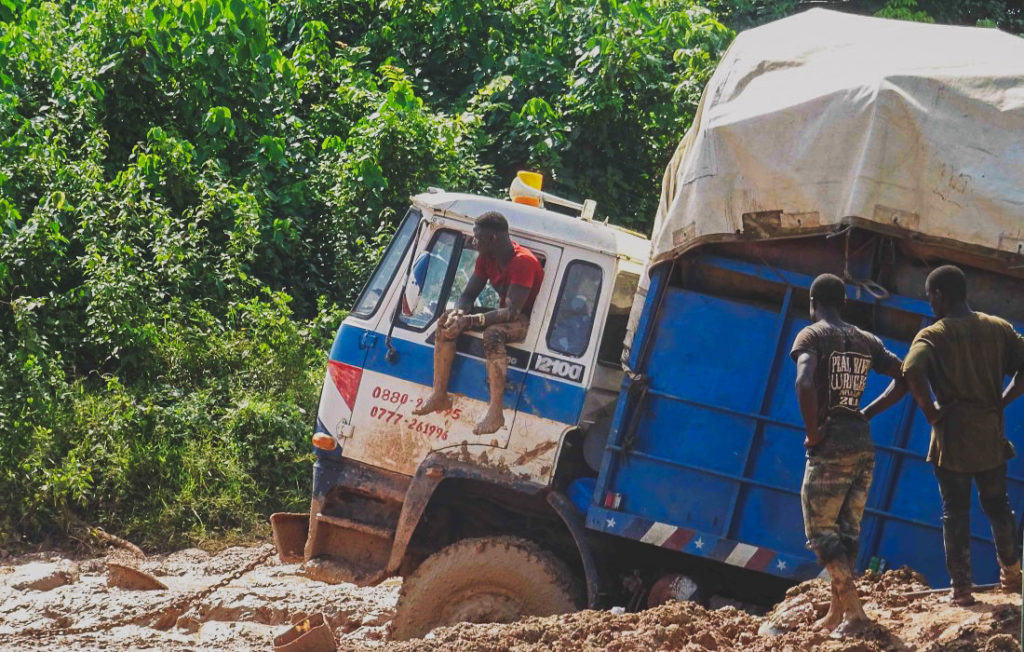
You have passed by areas that suffered terribly with Ebola. Are there still traces of the disease and can you see its impacts on the society?
Yes, definitely! In Sierra Leone, we met many families who were suffered severe losses because of Ebola. There are many orphans and we saw street kids who will hardly have any future because they cannot afford to go to school. We are sure there was an impact on society, since so many people died. It is hard to see how it is now; we would have to stay longer in the country to get a general picture.

I’m the first one to say “nowhere is as dangerous as media portrays”, but you have passed by several war-torn countries and you will pass many more. Have you ever felt “at risk” and do you take any particular safety precautions?
We actually never felt unsafe so far. The most dangerous aspect is always the traffic, but otherwise we felt extremely safe always.

Has this trip changed your core views on life? Did it change your perspective on what you want to do once this chapter comes to an end?
Time will tell! It is too early to look back, since we are still in the middle of this amazing adventure and it will probably take time once we are back home to reflect on every aspect of this trip and life in general. Maybe we have more clear visions when the next interview is due 😉

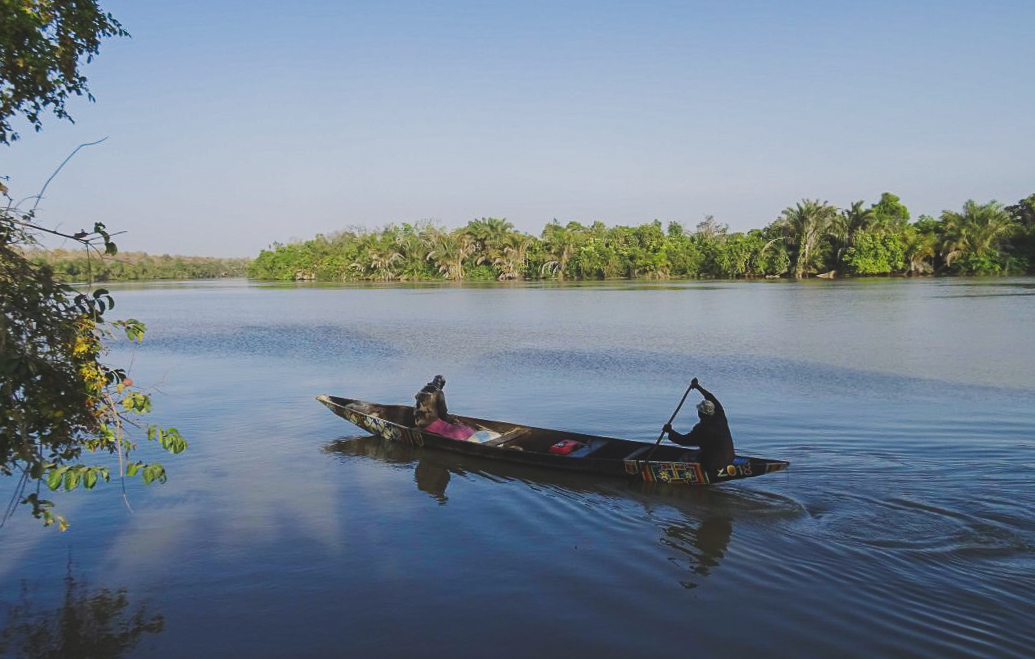






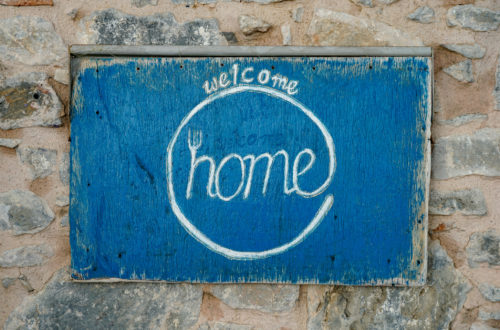
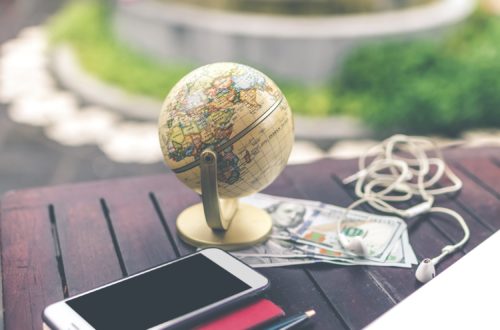
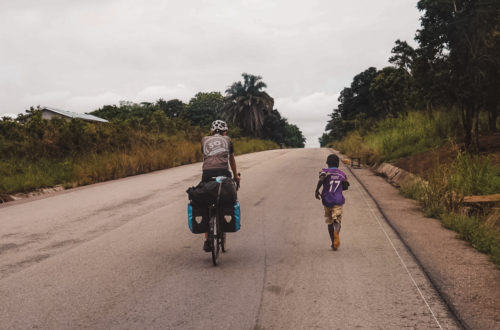
One Comment
Pingback: